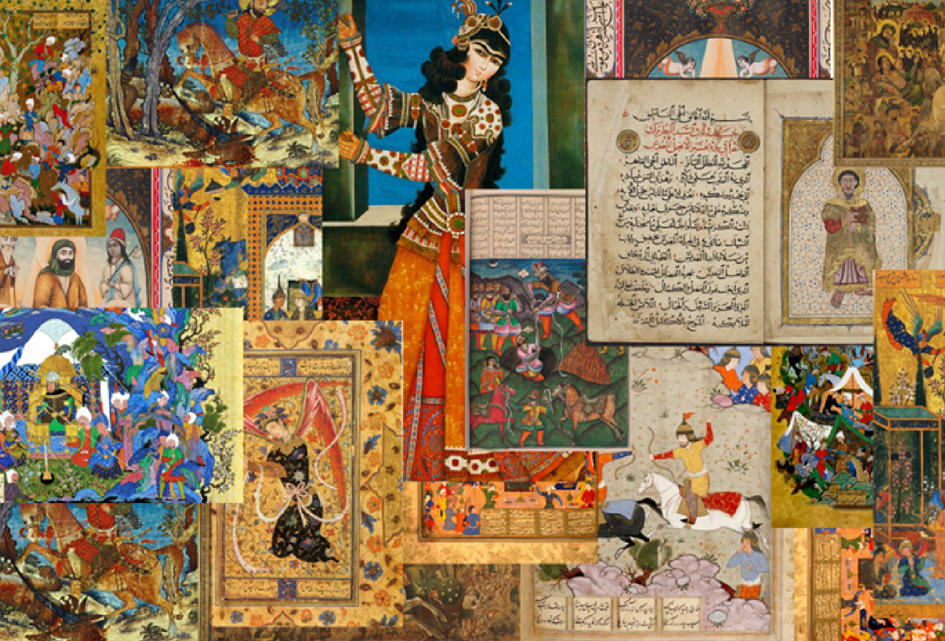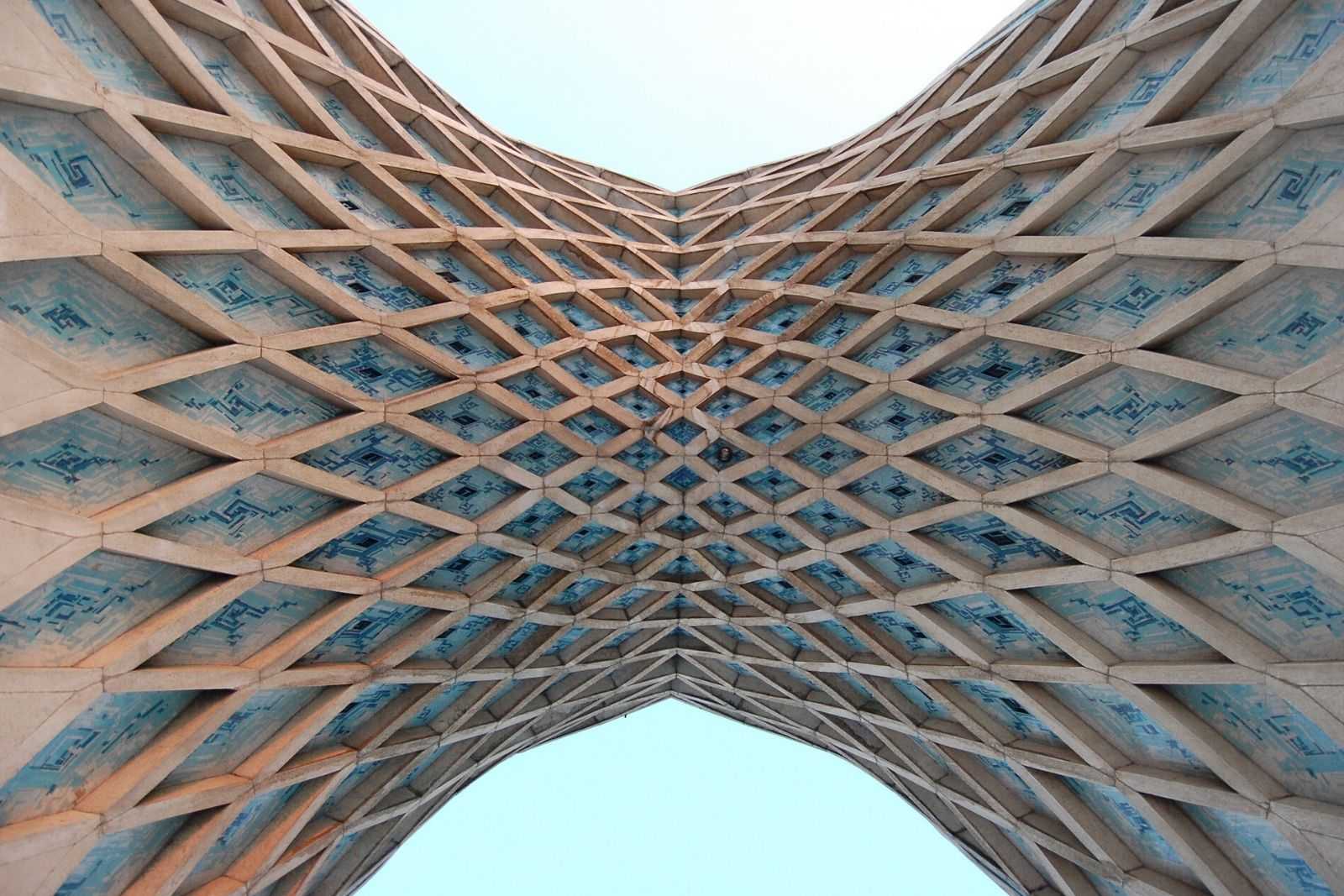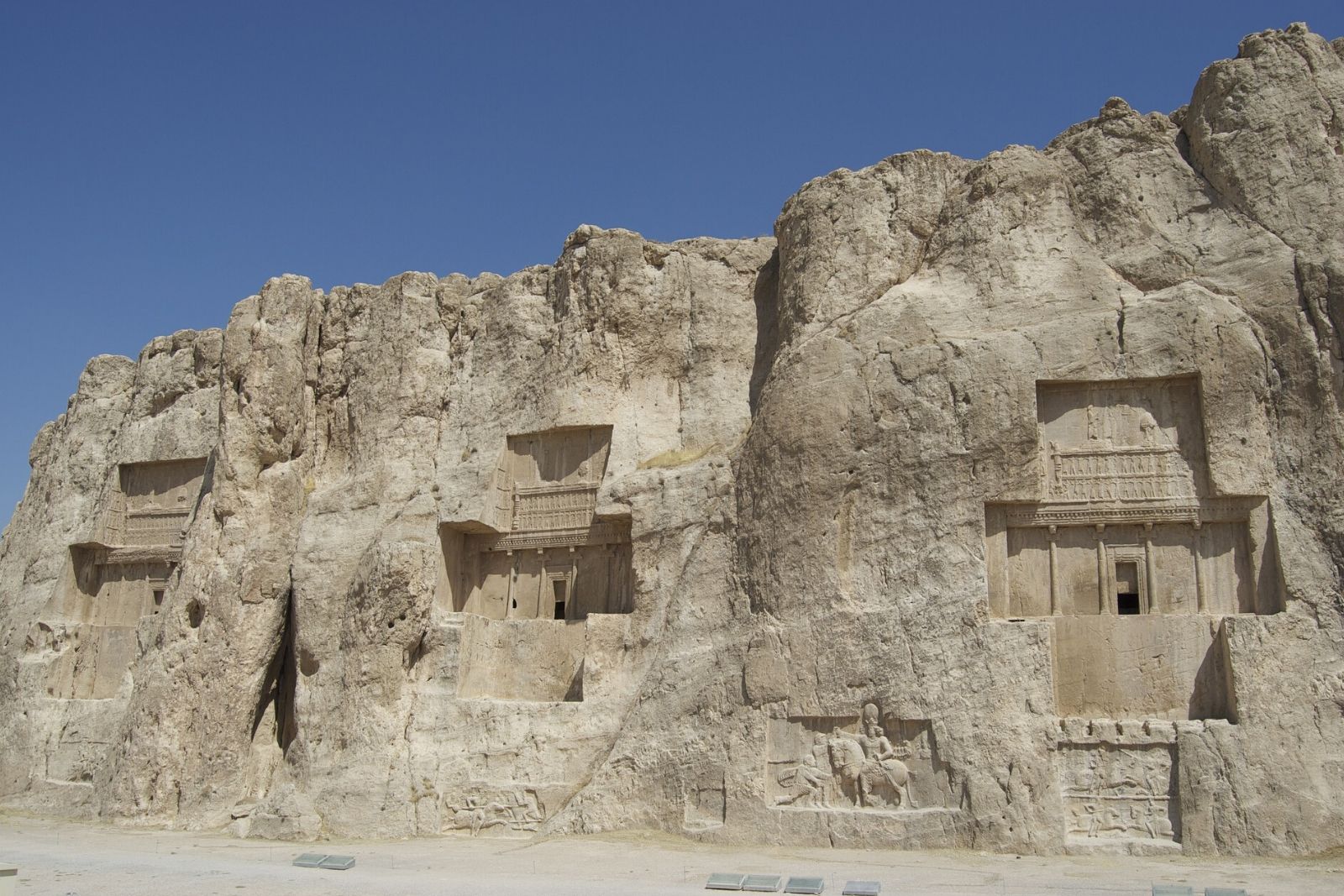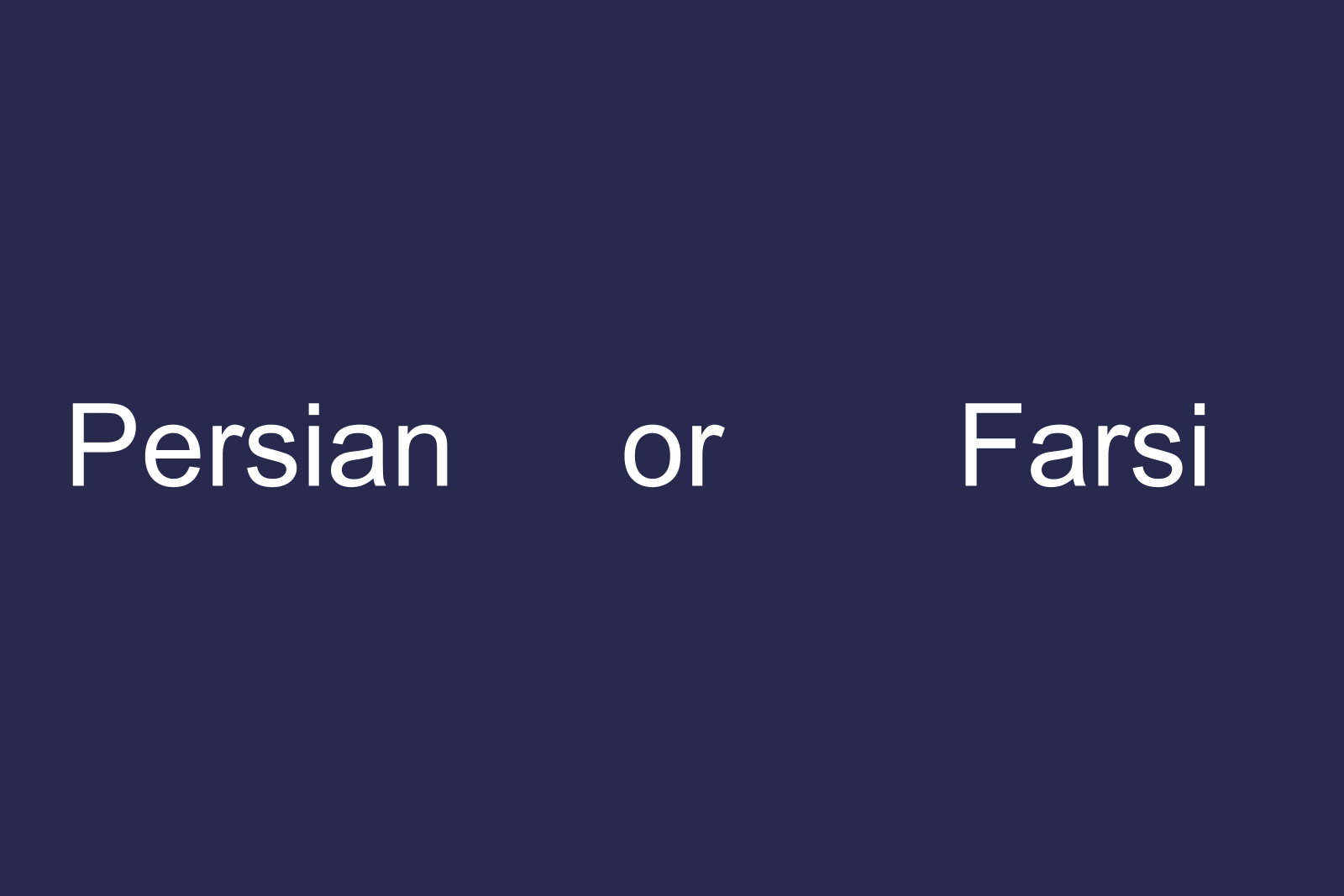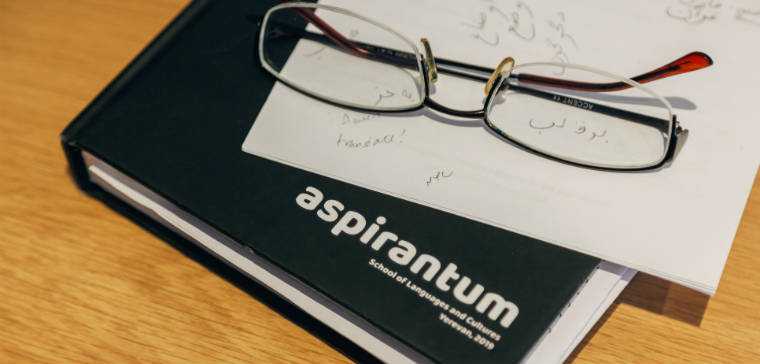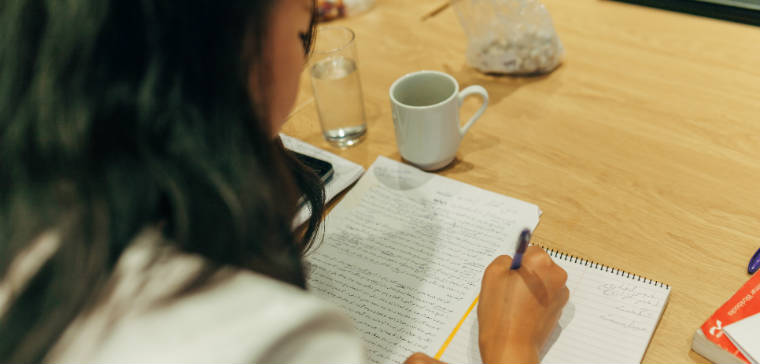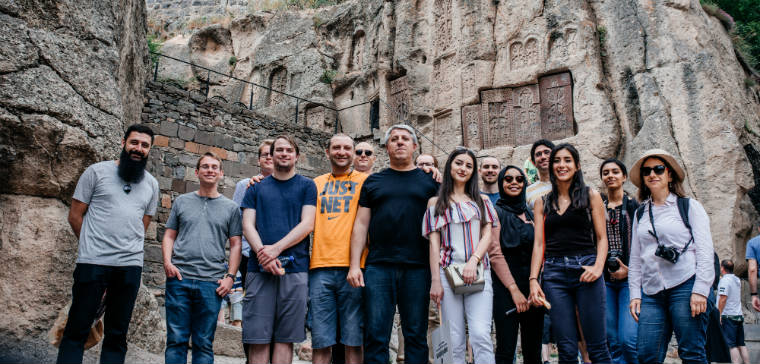My studies in Persian have taken a winding path. I started learning Persian in college because I wanted to learn my father’s language.
I grew up in the States hearing the language all around me — in the household, at social functions, etc. — without understanding it, and I always wanted to close the gap between myself and the people close to me, whose native tongue was Persian.
As an American, it’s difficult to go to Iran to study Persian due to political reasons. So I’ve gone as close as I can to the country itself to pursue my language studies. In the summer of 2017, I participated in the Critical Language Scholarship Program (CLS) for Persian in Tajikistan. Two years later, in summer 2019, I studied Persian in Armenia with the newly established ASPIRANTUM program led by Khachik Gevorgyan. Both programs allowed me the opportunity to learn Persian in two unique countries with close cultural ties to Iran, as they had both once part of the Persian Empire. I’d like to provide a brief overview here of the two programs to provide information for Persian learners seeking to study the language abroad.
CLS Persian language program in Dushanbe, Tajikistan
The CLS program is a prestigious United States Department of State exchange program for U.S. citizens which allows students to study a critical need foreign language.
Persian learners are sent to Dushanbe, Tajikistan for about two months.
Persian continues to be spoken in Tajikistan in the form of the Tajiki dialect, so this is probably the closest immersive experience a Persian learner could get without actually going to Iran, though getting used to the dialect took some time.
Students live with Tajik host families during their stay and attend Persian language classes five times a week.
The instructors could all speak and teach in standard Persian.
On weekends, there are usually organized excursions to nearby historic sites, like Hisor Fort; on unplanned weekends, students are free to organize their own trips.
Particularly memorable trips were camping and hiking excursions to the Iskanderkul and Alaudin lakes in the Fann Mountains and a stay at the floating hotel Aquaclub in Nurek Dam.
Within Dushanbe itself, we spent much of our time at local cafes and restaurants.
In the evenings, we had home-cooked dinners with our host families — these usually consisted of traditional Tajik food, like Plov, Sambosa, cucumber and tomato salads, meat and vegetables soups, and Non bread.
My host mother, father and siblings were extremely hospitable, generous and loving and made me feel completely at home during my stay.
I remember playing with the kids in the hayat, or traditional Persianite domestic courtyard, watching Bollywood films in the living room with the family, and sitting outside on the porch in the shade of grape leaves drinking chai and watching the sun set over the dusty neighborhood street.
All this being said, life in Tajikistan is not easy.
Tajikistan was an adventure so far removed from my usual life in the States, and this came with upsides and downsides.
The people were kind and hospitable, the adventures were thrilling, and my Persian improved tremendously, but there are many challenges to life in Tajikistan which travelers from first-world countries may not anticipate.
Most of the students suffered from chronic food poisoning for the duration of our stay due to polluted water.
The country is underdeveloped with little infrastructure and poorly organized bureaucratic and transportation systems.
The program is suitable only for those with a high level of adaptability, resilience and open-mindedness.
Living in a culture and adopting a lifestyle so different from the West means accommodating different views on gender, sexuality, religion, politics, etiquette, dress, etc.
Those who were willing to allow deep-seated values and perspectives to be tested and give up familiar patterns of thought and behavior benefited far more from the Tajikistan program than those who were more resistant to change.
The reward, however, of adapting to a radically unfamiliar environment was a greater understanding of both a new culture and one’s own culture.
ASPIRANTUM Persian language program in Yerevan, Armenia
My emphasis on the importance of openness applies also to living and learning in Armenia.
Unlike Tajikistan, life in Armenia is comfortable.
The capital city, Yerevan, where the program takes place, is well-organized, clean and safe.
I felt comfortable walking home late at night because the city is always lit up, cafes and restaurants are open late, and people of all ages walk around at night.
There are excellent and cheap taxi applications, well-paved streets, shopping malls, clean water, and a wide selection of food.
Unlike Dushanbe, where city life was limited to a few cafes, a karaoke bar, and questionable restaurants, Yerevan offers a lively jazz scene, a sprawling cafe culture, clubs, spas, concerts, and a delightful wine district.
The program itself was structured similarly to the Tajikistan program.
We had classes five times a week, Monday to Friday, with weekends free to travel.
There were both planned weekend excursions to famous historical sites, like Geghard Monastery, Garni Temple, Amberd Fortress, and Lake Sevan, and also free weekends.
During free weekends, the group also planned its own trips, including one to the neighboring country, Georgia, where the wine, food, and nightlife are also delectable.
This program is relatively new, so courses were not as structured as the CLS program.
For example, there were not as many instructors and classes as there were in the Tajikistan program.
While the Tajikistan program had five course levels, the Armenia program had two: beginner and intermediate.
This sometimes complicated the learning process because students were at very different levels.
Another drawback was that Armenia, though a wonderful travel destination, does not provide the immersive experience that Tajikistan does, since Armenians do not speak Persian.
Overall, however, as an advanced Persian student, I found that the program’s daily courses helped solidify my Persian knowledge and improve my speaking skills.
Many beginners found that their Persian improved drastically over the course of the program.
The novelty of the program also made it more flexible: instructors and administrators regularly met with students individually to receive feedback, and they promptly modified the courses throughout the program to fit students’ needs.
I am sure that as the program expands, it will become more streamlined.
Finally, just as in Tajikistan, my extended stay in Armenia was an irreplaceable opportunity to experience life from the vantage point of a unique and little explored corner of the world.
Atussa Mohtasham
PhD student, Princeton University, USA
ASPIRANTUM Persian Language Summer School 2019 participant
Read also: Atussa Mohtasham's testimonial about Persian Language Summer School 2019 in Yerevan

